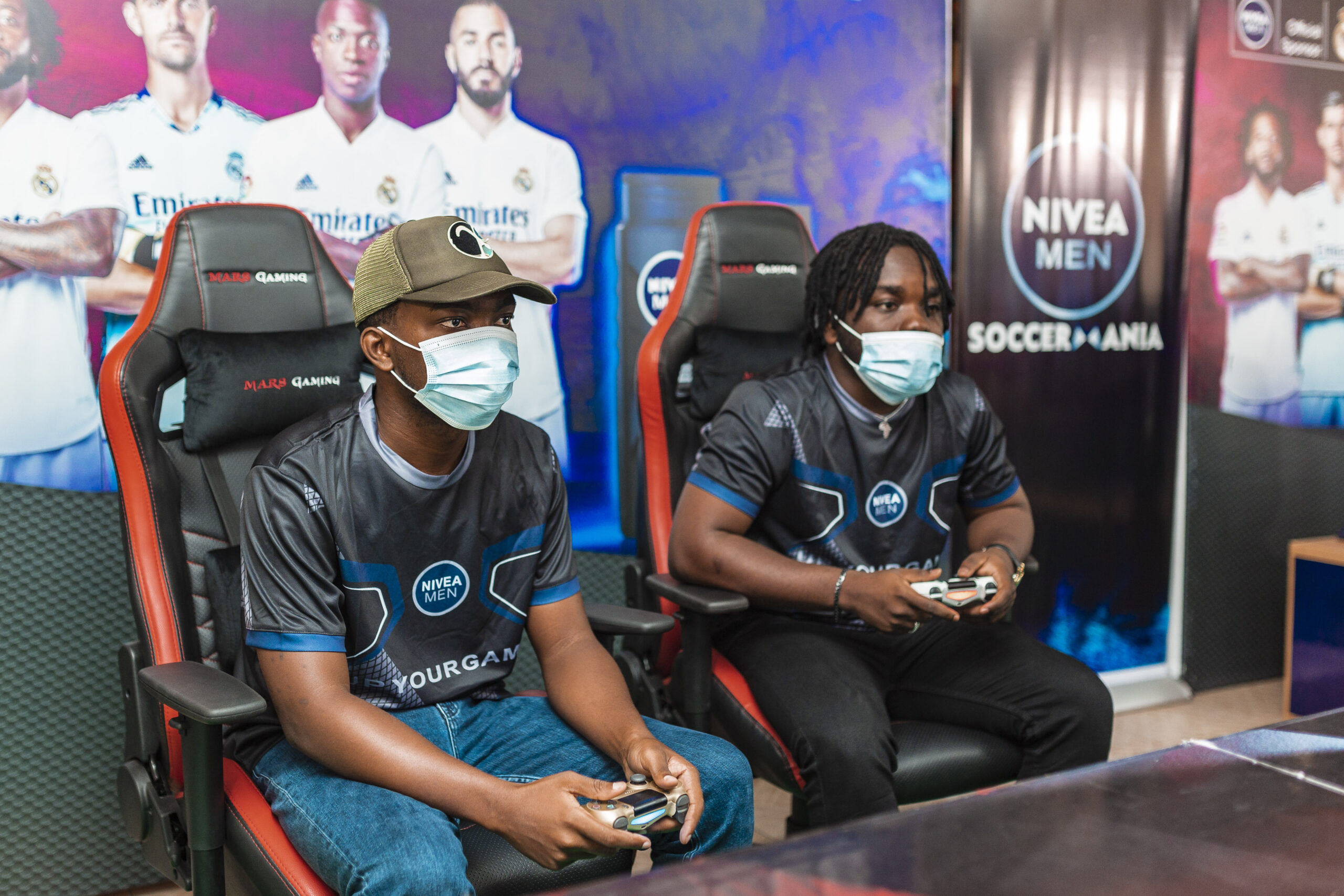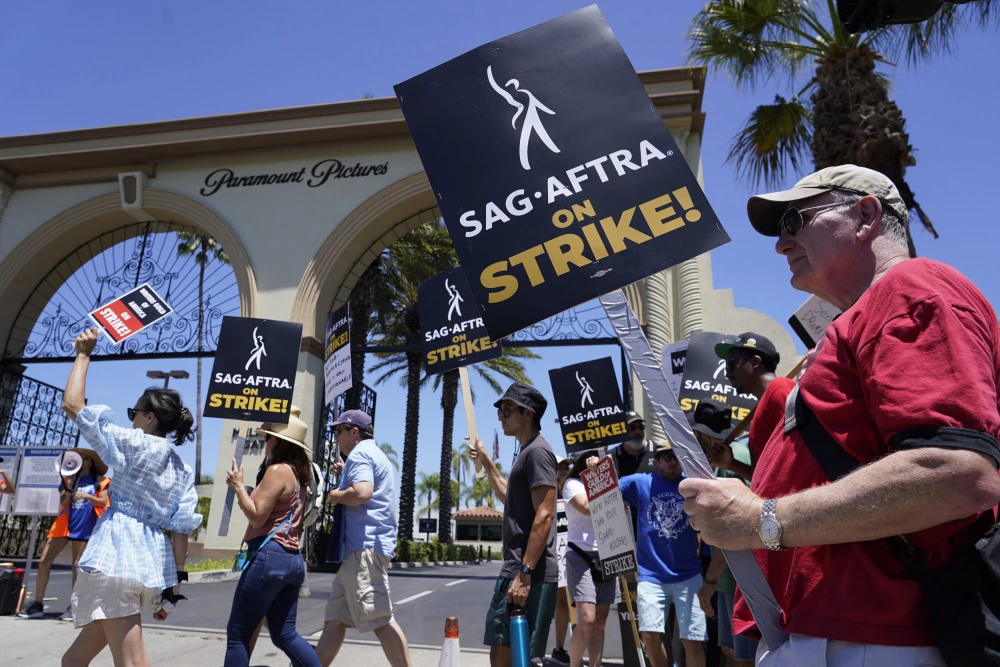


|Workers held signs and banners in protest, with badges saying "Play Fair"
For over a year and a half, Hollywood’s actors’ union, SAG-AFTRA, has been locked in negotiations with video game companies over a new contract for performers who bring characters to life in games. While they’ve made progress on issues like wages and job safety, talks have hit a major roadblock: protections against the use of artificial intelligence (AI).
The Screen Actors Guild-American Federation of Television and Radio Artists (SAG-AFTRA) is particularly concerned that AI could replace human performers by replicating their voices or likenesses without consent. AI is already used in some video game productions to clean up voice recordings or modify character voices for different stages of their lives. However, actors worry that this technology could advance to a point where game companies no longer need to hire real actors at all.
Sarah Elmaleh, chair of the interactive negotiating committee, voiced her concerns:
“Our concern is the idea that all of this work translates into grist for the mill that displaces us… They do not have to call us back, and we do not have to be informed of what they’ve used our material to create.”
Despite gains made in other areas, AI protection remains the major sticking point in negotiations. Duncan Crabtree-Ireland, SAG-AFTRA’s executive director, noted,
“The fundamental issue is an unwillingness by this bargaining group to provide an equal level of protection from the dangers of AI for all our members.”
Voice actors, motion capture performers, and stunt workers are all affected, with many fearing that AI could make their jobs obsolete. Actor Scott Lambright, who has voiced non-player characters (NPCs) in games, is particularly concerned about AI replacing smaller roles that allow actors to gain experience before moving on to bigger parts.
“Having those roles gives you the trust in yourself to take a bigger role. And if one doesn’t have access to NPC roles… you’re going to have no confidence leading something.”
In September, SAG-AFTRA members voted to give union leadership the authority to strike. While union leaders hope to avoid a strike, they are prepared to take that step if necessary. Crabtree-Ireland emphasized,
“Anyone who thinks that we’re afraid to go on strike, or that we won’t go on strike, clearly hasn’t been paying attention.”
The concerns surrounding AI also fueled last year’s strikes by actors in the movie industry, which lasted for four months.
The last interactive contract, negotiated in 2017, did not include AI protections, and this has become a critical issue in the current negotiations. SAG-AFTRA represents over 2,500 performers, including voiceover actors, stunt performers, and motion capture artists. Video game companies such as Activision, Electronic Arts (EA), and Disney are willing to provide protections for voice actors, but they are hesitant to extend these protections to other performers.
Amid these tense negotiations, SAG-AFTRA has made separate agreements with indie developers and AI voice company Replica Studios. These agreements give actors more control over how their voices are used, allowing them to opt out of having their digital likeness or voice used in perpetuity.
AI technology is evolving, and the ethical implications surrounding its use are becoming more complex. Tim Friedlander, president of the National Association of Voice Actors, highlighted the challenge of monitoring how AI uses voice recordings, saying,
“If my voice is out there … doing something that I wouldn’t say, now I’m potentially in conflict with myself. Now I’m losing work to my own voice.”
As the use of AI in video games continues to grow, performers and the industry must navigate this delicate balance between innovation and the protection of creative professionals. Whether these negotiations result in a strike or a fair agreement, the outcome will shape the future of how AI and human talent coexist in the world of gaming.
Source: The Associated Press
We care about the protection of your data. Read our Privacy Policy.